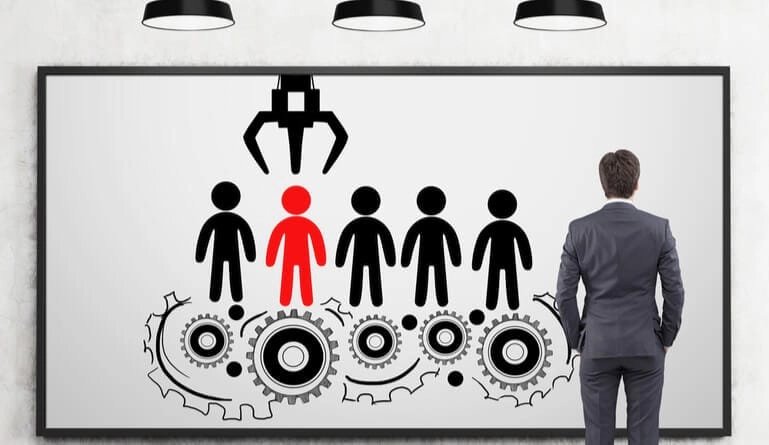Finding the best talent is one of the top priorities for businesses, specifically for HR. It’s important to find people who can support the goals of the business through their skill set and also mesh well with the business culture.
Recruitment has always focused on finding skilled employees and working with candidates to determine if they’re a good match. Technology can help with talent recruitment now more than ever, including the use of automated hiring systems for recruitment automation.
What is recruitment automation?
According to Entelo, a recruitment automation software company, recruitment automation is, “a category of technology that allows companies to automate recruiting tasks and workflows so they can increase recruiter productivity, accelerate time-to-fill, reduce cost-per-hire and improve the overall talent profile of their organization. Recruiting automation is a subset of Human Capital Management (HCM), a category of enterprise software-as-a-service (SaaS) used by companies to manage all aspects of their workforce…Recruiting automation enables talent acquisition teams to automate processes that were previously performed manually. These technologies leverage artificial intelligence (AI), machine learning and predictive analytics and can be found at all stages of the hiring process (pre-applicant, during the application process and post-hiring decision).”
Ultimately, recruitment automation software helps HR teams and recruitment personnel find the best talent faster, saving businesses time and money along the way.
Will automated recruitment change how businesses approach recruiting?
The answer to this is yes and no. Recruitment will still focus on attracting the best talent and finding a fit for a position based on skills, experience, and a good corporate culture match. But the truth is that most companies need to improve and change their recruitment process to match the expectations of incoming candidates and compete with other businesses for securing candidates.
Recruitment automation, for instance, helps businesses same time in order to fill jobs faster. This not only leads to better productivity and reduced lost dollars at the company, it means drawing from a higher-quality talent pool because waiting too long during recruitment can mean the best talent gets brought onboard by another company.
How will automated hiring systems affect your business?
Here are the ways that automated hiring systems can stand to change your recruitment process for the better.
1. Better resume screening
Using the technology of recruitment means that recruiters spend less time manually screening resumes and can reply on smart data to help them pre-screen the best and most promising applicants. Automated hiring software eliminates unqualified resumes from the stack and helps recruiters fill positions faster. According to Ideal, “intelligent screening software learns what the job requirements are and then learns what qualified candidates look like based on previous hiring decisions.” Many times of AI-powered recruiting automation software can also search public data sources and gather information about a candidate’s previous employer, social media, and more to give recruiters a more holistic look at a candidate’s history.
2. Improved candidate updates
Nothing is more frustrating for a candidate than to interview and hear nothing back for weeks on end. In fact, if candidates don’t hear back from potential employers in a timely fashion, they’re more likely to drop out of the recruiting process, potentially causing businesses to lose out on quality candidates who could have contributed to company success.
3. Better time management
Automated hiring means recruiters can spend less time reading the resumes of people who aren’t a good fit and spend more time interacting with more quality candidates and moving them through the process faster, to the benefit of the business and the candidate alike. Hiring a quality candidate faster saves the company money by filling a role and reducing lost productivity.
The good news is that automated hiring systems aren’t going to phase out recruiters. There is more to hiring than simply matching years of experience and skill sets to a job description. Automated recruitment works a little bit the way that a dating app might; it can lead people to each other based on mutual interests and preferences, but people still have to be involved, get to know each other, and decide. There is still the need for human conversations and reason to play a part in bringing people on board at a company. There is still a level of instinct involved in recruitment and the ability to discern a number of factors, such as “Will a candidate with a strong personality clash with their strong-willed manager or does their experience and personality dictate that they can take instruction?”
How your company interacts with potential employees is just as important as how it interacts with customers and clients. Your employee brand should be aligned with your candidate brand and you should bring strategy, consistency, and dedicated resources to both areas for your business to be as successful as possible. If your business is ready to be more competitive and efficient in your talent search, it’s important to consider recruitment software solutions. The ability to guide the hiring process will be better supported by automated hiring systems, enabling businesses to make smarter choices about their candidates and their company.




